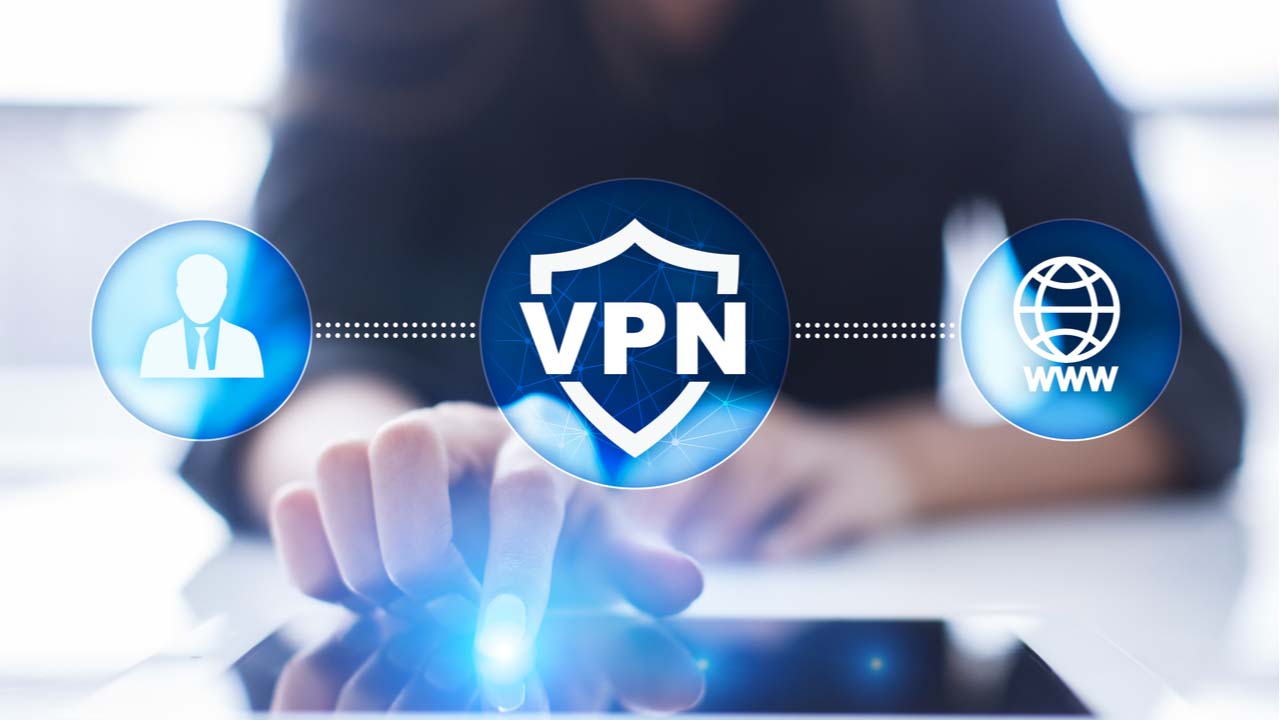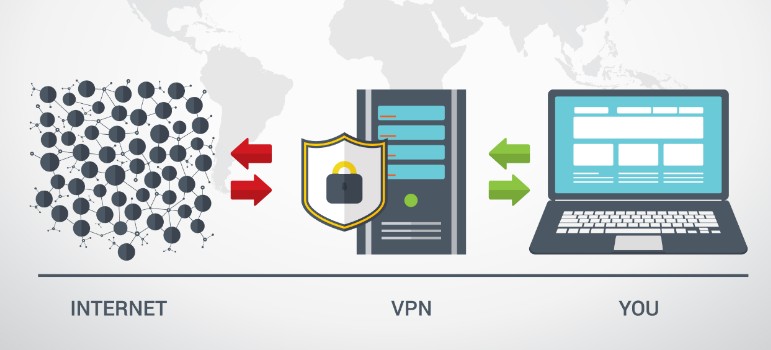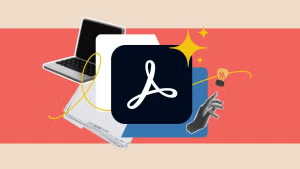How To
The ‘Free VPN’ Trap: Dangers, Realities and Safe Paid Alternatives

- June 23, 2020
- Updated: March 20, 2024 at 9:34 AM

Using a free VPN may seem like an amazing idea at first. It promises the online anonymity you crave, lets you bypass geo-blocking, and makes you feel like your personal data and searches are always protected. Oh, and it doesn’t cost a dime!
But, as is often the case, there’s no such thing as a free lunch. Nobody offers a free service without getting something in return, and free VPNs are a perfect example of this.
You might be reading this article because you’ve researched the advantages of VPNs and decided to download a free one. But please think twice before trying your luck with a free VPN, because we’re not kidding when they say they’re a potential threat to your computer and data security. Do you find that hard to believe?
Today we’re going to talk about the free VPN scam, and how, after promising you anonymity and access to geo-blocked content, they truly put your privacy at risk. We hope you find it helpful!
Why it’s dangerous to use a free VPN
Free VPNs may seem harmless, and you may have even tried one in the past. You might remember it fondly and wonder why we’re saying they’re so dangerous. Below, we have listed the main pitfalls of free VPNs.
1. They expose your device to hackers and malware
VPNs (Virtual Private Networks) are mainly used to create safe work environments where you can go online without worrying about your data being intercepted. Free VPNs promise you this, but they actually offer a completely different experience.
A recent security study that analyzed 283 free VPNs revealed that 38% of them were infected with malware. This malware is usually advertising-related, and it infects computers and handheld devices in order to monetize the VPN. Because although it promises to be free, it earns money by installing malware.
But malware isn’t the only danger lurking behind free VPNs. If you’ve been researching them for some time, you probably remember the Hola scandal. This seemingly innocuous VPN promised anonymous online browsing and unlimited access to geo-blocked services… and it didn’t cost a dime! However, what users didn’t know was that by using the service, they were sharing their bandwidth with third parties and even unwittingly participated in a botnet.
2. They track your online activity
This might come as a surprise, because most people use VPNs because they want to browse anonymously and prevent their activity from being traced. A recent study found that 72% of free VPNs track all of your online activity and collect your data to sell it to third parties. That way, the VPN can be free and earn money off your data.
If you have a hard time believing this, just read the fine print for most of these VPNs, where they admit to collecting and processing your data for their own and third-party use.
3. They don’t provide reliable access to geo-blocked content
If you were hoping to use a free VPN to access the complete catalogs of platforms like Netflix, we have bad news: you can’t. While this was possible years ago, there is no free VPN today that consistently offers this advantage.
Tunnelbear, for example, sometimes manages to unblock Netflix, but keep in mind that you can only use 500 MB free per month. Another one, ProtonVPN also lets you access Netflix, but the service is so slow that you can’t even enjoy the content.

The Best VPNs for Unblocking Content on Netflix
READ MORE4. They slow down your internet connection
A paid VPN’s servers not only match your regular internet connection speed, but sometimes even surpass it. However, the free ones have the opposite effect. Their data-transfer speed is so slow that you can barely browse the internet.
It’s true that some free VPNs are fast enough, but they are the kind that limit the amount of data you can use without paying. Once you exceed that limit, you have to purchase a subscription to keep using the service.
5. They bloat your device with ads
As we mentioned, a free VPN may not ask for money upfront, but it manages to amass a small fortune through the ads it displays on your device. They’ll normally appear as pesky pop-ups every time you go online, or be hidden in your interface to prey on distracted users who accidentally click on them.
Besides being extremely annoying, the ads displayed by free VPNs slow down your connection and make browsing the internet a real ordeal. Keep in mind that if you use the VPN on your phone, the ads alone will chew through your data in the blink of an eye.
But that’s not even the worst they can do. Ads displayed by free VPNs are usually linked to malicious websites and end up installing malware on your device. This not only slows down your device, but also puts your privacy and personal data at risk.
6. They can sell your bandwidth and even involve you in criminal activities
This may come as a surprise, but some free VPNs are capable of selling your bandwidth to third parties. At the beginning of this article, we mentioned the Hola case, where the company stole bandwidth from free-version users and sold it to third-party companies through the brand Luminati. The scandal was all over the news, as Luminati was used to carry out a botnet attack on 8chan, and all Hola users and their computers unwittingly participated in it. For this reason, when you use a free VPN, you can never be sure that your device won’t be linked to some unlawful activity online.
Is it worth using a free VPN?
The answer is a categorical NO. The drawbacks and dangers of using a free VPN vastly outweigh the pros, if the latter even exist. In fact, you’re safer browsing online without a free VPN than with one. So if you want to use a VPN, don’t be a cheapskate! It’s worth spending a few bucks a month to reap all the advantages of a private network.
What are some paid alternatives to free VPNs?
Fortunately, there are some excellent, fast and secure VPNs with affordable subscriptions. Below are our favorites:
1. ExpressVPN
ExpressVPN is perfect for anyone seeking a balance between speed, security and, of course, good results. Boasting more than 3,000 servers in 160 locations around the globe, it lets you browse anonymously and access all kinds of geo-blocked content. With a single subscription to ExpressVPN, you can connect five devices (computers, phones, tablets, etc.) simultaneously. What’s more, it’s easy to use and versatile, making it the top choice of most experts in the sector.
2. NordVPN
NordVPN can boast of being one of the safest VPNs on the market. With more than 5,500 servers in over 55 locations around the world, it has excellent performance in terms of browsing, downloading and streaming. While most VPNs use 256-bit encryption, NordVPN goes a step further and uses 2048-bit encryption, guaranteeing your anonymity and data security. It’s perfect if you’re looking for a good VPN that fully protects your device.
3. HotSpot Shield
One of the easiest, most intuitive VPNs on the market, HotSpot Shield is ideal for anyone who wants to surf the internet without complicated menus. You can start to browse rapidly and easily at the click of a button. Among HotSpot Shield’s strengths is the fact that this VPN can encrypt your internet connection if you have to use a public Wi-Fi network, protecting your device and data.
Before you purchase a paid VPN, be sure to check out our deals at Softonic. Check out our picks for the Best VPNs of 2020 with discounts of up to 80% on subcriptions.
We hope this article has helped you decide between downloading a free VPN and a paid one. What is your favorite VPN? Tell us about it!

Quick and easy guide to VPNs
READ MORELatest from Softonic Editorial Team
You may also like

Former Waymo CEO Raises Red Flags About Tesla’s Cybercab Design
Read more

Innovation and Future Trends: Integrating Adobe Acrobat AI Assistant in Digital Transformation
Read more

Google Pixel 9a vs Pixel 8a: Changes that are not immediately visible
Read more

This Windows zero-day vulnerability is being exploited: can we do anything about it?
Read more

Kia Unveils Innovative Experience Center in Seoul Showcasing New Electric Vehicles
Read more

Google Pixel 9a vs Samsung Galaxy S24 FE
Read more

